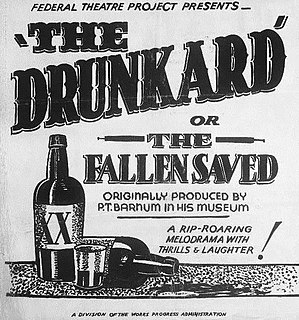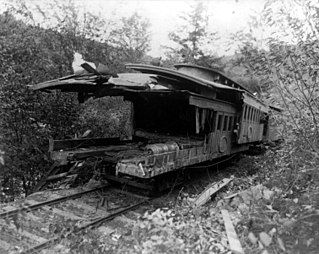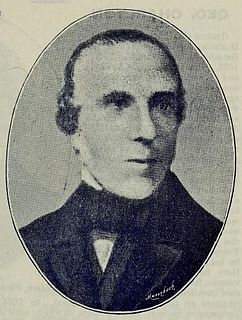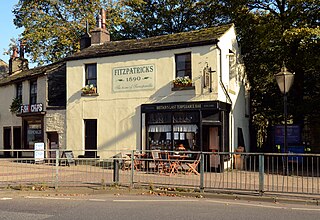 W
WThe temperance movement is a social movement against the consumption of alcoholic beverages. Participants in the movement typically criticize alcohol intoxication or promote complete abstinence from alcohol (teetotalism), and its leaders emphasize alcohol's negative effects on people's health, personalities and family lives. Typically the movement promotes alcohol education and it also demands the passage of new laws against the sale of alcohol, either regulations on the availability of alcohol, or the complete prohibition of it. During the 19th and early 20th centuries, the temperance movement became prominent in many countries, particularly in English-speaking and Scandinavian ones, and it eventually led to national prohibitions in Canada, in Norway and in the United States, as well as provincial prohibition in India. A number of temperance organizations exist that promote temperance and teetotalism as a virtue.
 W
WAdam's ale is a colloquial allusion meaning water. It alludes to the idea that the biblical Adam had only water to drink. This inference gained popularity around the beginning of the 19th-century temperance movement.
 W
WAmerican Temperance University opened in 1893 in the planned town of Harriman, Tennessee, which was developed as a community with no alcoholic beverages permitted. In its second year of operation the institution enrolled 345 students from 20 states. However, it closed in 1908. Those who attended included two students who later became members of the U.S. House of Representatives, John Jennings, Jr. and James Willis Taylor.
 W
WHarriet E. Bishop was an American educator, writer, suffragist, and temperance activist. Born in Panton, Vermont, she moved to Saint Paul, Minnesota in 1847. There she started the first public school in the Minnesota Territory, the first Sunday school in the territory, was a founding member of temperance, suffrage and civic organizations, played a central role in establishing the First Baptist Church of Saint Paul, and was an active promoter of her adopted state.
 W
WThe Canberra Hotel was a temperance hotel on the western corner of Ann and Edward Streets, Brisbane, Queensland, Australia.
 W
WA coffee palace was an often large and elaborate residential hotel that did not serve alcohol, most of which were built in Australia in the late 19th century.
 W
WPublic drinking fountains in Philadelphia, Pennsylvania, United States, have been built and used since the 19th century. Various reform-minded organizations in the city supported public drinking fountains as street furniture for different but overlapping reasons. One was the general promotion of public health, in an era of poor water and typhoid fever. Leaders of the temperance movement such as the Woman's Christian Temperance Union saw free, clean water as a crucial alternative to beer. Emerging animal welfare organizations, notably the Society for the Prevention of Cruelty to Animals, wanted to provide water to the dogs and working horses of the city on humanitarian grounds, which is why Philadelphia's drinking fountains of the era often include curb-level troughs that animals could reach.
 W
WThe Drunkard; or, The Fallen Saved is an American temperance play first performed on February 12, 1844. A drama in five acts, it was perhaps the most popular play produced in the United States until the dramatization of Uncle Tom's Cabin premiered in 1853. In New York City, P.T. Barnum presented it at his American Museum in a run of over 100 performances. It was among the first of the American temperance plays, and remained the most popular of them until it was eclipsed in 1858 by T. S. Arthur's Ten Nights in a Bar-Room.
 W
WThe Temperance Fountain is a fountain and statue located in Washington, D.C., donated to the city in 1882 by Henry D. Cogswell, a dentist from San Francisco, California, who was a crusader in the temperance movement. This fountain was one of a series of temperance fountains he designed and commissioned in a belief that easy access to cool drinking water would keep people from consuming alcoholic beverages.
 W
WFranklin Evans; or The Inebriate, is a temperance novel by Walt Whitman first published in 1842.
 W
WThe Gothenburg or Trust Public House system originated in the 1860s in Gothenburg, Sweden in an attempt to control the consumption of spirits. Earlier in the century, 34 litres annual per capita consumption of spirits was recorded in Sweden. In 1855 the country proscribed domestic distillation. The city of Gothenburg awarded its sole retail licence for spirits to a trust, with the aim of controlling consumption. The shareholders of the trust were to receive a maximum return of 5% annually and all other profits were to be used to benefit the local community. The town treasury was to control the income generated and use it to provide libraries, museums, parks and other community facilities. The success of the system led to its spread throughout Sweden and further afield.
 W
WKiama Masonic Temple is a heritage-listed masonic temple and former temperance hall at 46 Collins Street, Kiama, Municipality of Kiama, New South Wales, Australia. It was built from 1876 to 1878 with alterations in 1908-09. It is also known as Temperance Hall. The property is owned by Kiama Masonic Lodge. It was added to the New South Wales State Heritage Register on 2 April 1999.
 W
WLeaf Hall is a grade II listed former working men's institute in Eastbourne, East Sussex. It was built in 1863–64 to a design by Robert Knott Blessley in a continental gothic style for the philanthropist William Leaf. It was closely associated with the temperance movement. The building now serves as a community arts centre.
 W
WThe Metropolitan Drinking Fountain and Cattle Trough Association was an association set up in London by Samuel Gurney, a Member of Parliament, and philanthropist and Edward Thomas Wakefield, a barrister, in 1859 to provide free drinking water.
 W
WMoralism is a philosophy that arose in the 19th century that concerns itself with imbuing society with a certain set of morals, usually traditional behaviour, but also "justice, freedom, and equality". It has strongly affected North American and British culture, concerning private issues such as the family unit and sexuality, as well as issues that carry over into the public square, such as the temperance movement.
 W
WThe Mud Run disaster was a train wreck that occurred on October 10, 1888, at Mud Run station in Kidder Township, Carbon County, Pennsylvania, on the Lehigh Valley Railroad. At 10 p.m., one train ran into the back of another, killing 64 people.
 W
WSheldon Peck was an American folk artist, conductor on the Underground Railroad, and social activist. Peck's portraiture – with its distinctive style — is a prime example of 19th century American folk art. He also become known for advocating abolitionism, racial equality, temperance, public education, women's rights, and pacifism.
 W
WThe People's Palace is a heritage-listed building and a former temperance hotel in the Brisbane CBD, City of Brisbane, Queensland, Australia. It is located at 308 Edward Street on the southern corner with Ann Street, diagonally opposite to Brisbane's Central Railway Station. It was designed by Colonel Saunders and built from 1910 to 1911. It was added to the Queensland Heritage Register on 21 October 1992.
 W
WProhibition Park, also called National Prohibition Park, was a temperance town and park used as a summer colony in the New York City borough of Staten Island, precursor to the modern Westerleigh neighborhood. The park and community were founded after the purchase of the land in 1887 by members of the National Prohibition Party during a temperance movement prior to Federal prohibition in the United States, with the specification that no consumption of alcohol would be permitted in the area. At its peak the park had extended nearly 150 acres, but declined in the 1900s along with the temperance movement, with much of the land sold to non-movement members. The remaining parkland was obtained by the City in 1907, surviving as Westerleigh Park and Northerleigh Park operated by the New York City Parks Department.
 W
WJames Rewcastle (c.1802–1867) was the first secretary of the Newcastle Temperance movement, and a songwriter born in the Newcastle area. His most well-known song is possibly "Jackey and Jenny".
 W
WThe Skeleton Army was a diffuse group, particularly in Southern England, that opposed and disrupted The Salvation Army's marches against alcohol in the late 19th century. Clashes between the two groups led to the deaths of several Salvationists and injuries to many others.
 W
WStraight edge is a subculture of hardcore punk whose adherents refrain from using alcohol, tobacco and other recreational drugs, in reaction to the excesses of punk subculture. For some, this extends to refraining from engaging in promiscuous sex, to following a vegetarian or vegan diet, and to not using caffeine or prescription drugs. The term straight edge was adopted from the 1981 song "Straight Edge" by the hardcore punk band Minor Threat.
 W
WTeetotalism is the practice or promotion of complete personal abstinence from alcoholic beverages. A person who practises teetotalism is called a teetotaler or is simply said to be teetotal. The teetotalism movement was first started in Preston, England, in the early 19th century. The Preston Temperance Society was founded in 1833 by Joseph Livesey, who was to become a leader of the temperance movement and the author of The Pledge: "We agree to abstain from all liquors of an intoxicating quality whether ale, porter, wine or ardent spirits, except as medicine." Today, a number of temperance organizations exist that promote teetotalism as a virtue.
 W
WA temperance bar, also known as an alcohol-free bar, sober bar, or dry bar, is a type of bar that does not serve alcoholic beverages. An alcohol-free bar can be a business establishment or located in a non-business environment or event, such as at a wedding. Alcohol-free bars typically serve non-alcoholic beverages, such as non-alcoholic cocktails known as mocktails, alcohol-free beer or low-alcohol beer, alcohol-free wine, juice, soft drinks and water. Popular temperance drinks include cream soda, dandelion and burdock, sarsaparilla, and Vimto, among others. Various foods may also be served.
 W
WThe Temperance Billiard Hall at 131–141 King's Road, Chelsea, London, is a Grade II listed building with English Heritage.
 W
WTemperance Billiard Hall Co. Ltd. was a company founded in 1906 in Pendleton, Lancashire, as part of the wider temperance movement, which built billiard halls in the north of England and London.
 W
WTemperance songs are those musical compositions that were sung and performed to promote the Temperance Movement from the 1840s to the 1920s. It was a distinct genre of American music. In 1830 the US per capita consumption of alcohol was 9.5 gallons yearly, almost four times the rate of consumption in 2008. In response, many temperance organizations formed over the next eighty years. Some temperance song lyrics were sung with already well-known songs of the period, for example, "Oh! Susanna". This Stephen Foster melody was used with lyrics in support of temperance and the title changed to “There's A Good Time Coming,” in 1857, ten years after the publication of the original lyrics of "Oh! Susanna".
 W
WThe Gothenburg, or simply The Goth, is a community-run pub in the former mining village of Fallin, near Stirling, Scotland.